Original Research: How Patients Are Using Wearables to Manage Chronic Conditions
Exclusive research from HRA® shows that patients are increasingly familiar with wearable technology, though somewhat concerned about costs and privacy implications.

Healthcare Analytics News™ is the official publication of Healthcare Research & Analytics® (HRA®), a healthcare market research practice with a particular focus on the hospital setting and specializations in managed markets, oncology, and pharmacy. As part of our partnership, we are able to publish exclusive research on key topics in the evolving field of health tech. This is the first entry in a 4-part research program on the ways that patients and providers are using data from wearables and mobile applications.
Based on a recent market research study conducted with 100 patients who have at least 1 chronic condition, 4 in 5 patients self-report being familiar with wearable technology (ie, devices and apps, Figure1). Patients with cancer appear to be significantly more familiar with the technology than patients without cancer (Figure 1). Among those who are familiar, about two-thirds have some experience using the devices and apps (Figure 1).
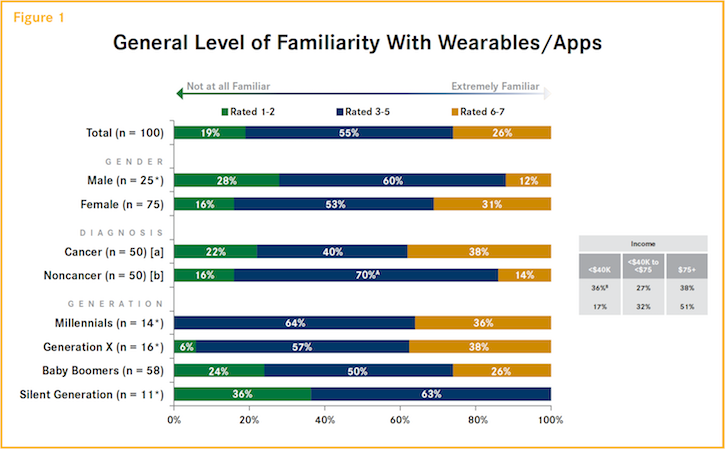
(Click chart to expand)
Respondents were asked to rate their level of concern, if any, with the costs and privacy aspect that are associated with wearables. Findings reveal that twice as many patients are concerned with costs than they are with privacy (Figure 2). The implication of this finding is 2-fold: There is a perception that there is not much of a privacy risk associated with the current technology from the patients’ perspective, or there is a lack of appreciation of how risky privacy issues can be.
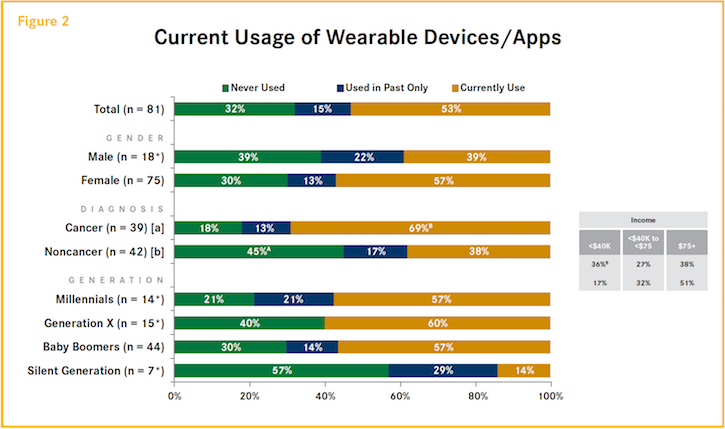
Interestingly, 60% of respondents who are familiar with wearables are currently sharing the data with their healthcare providers, (ranging from rarely to always (Figure 3). Over the next 5 years, this percentage is expected to spike by as much as 26% (Figure 3). According to Lee W. Jones, PhD, who is a director of the Exercise-Oncology Research Program at Memorial Sloan Kettering Cancer Center in New York, New York, this type of objective information has the potential to help physicians facilitate continued improvements in lifestyle changes or for those patients who are not doing very much, the information could help initiate change.
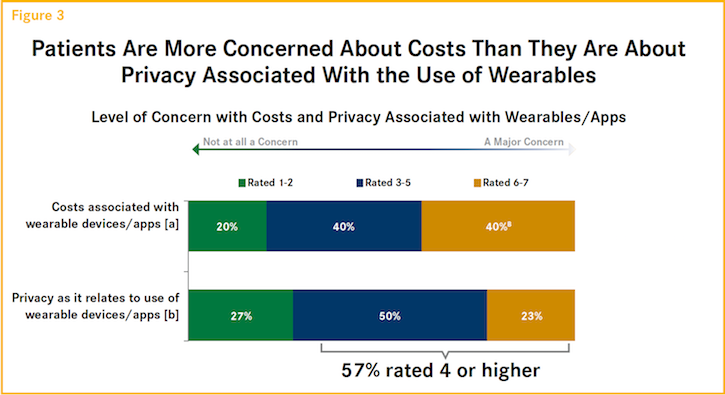
Jones said that piece of the puzzle is still missing from today’s wearables technology: personalization. If we had a device that used an algorithm to suggest, and not just record, how many steps per day an individual should take at a certain intensity, that would be a game-changer.
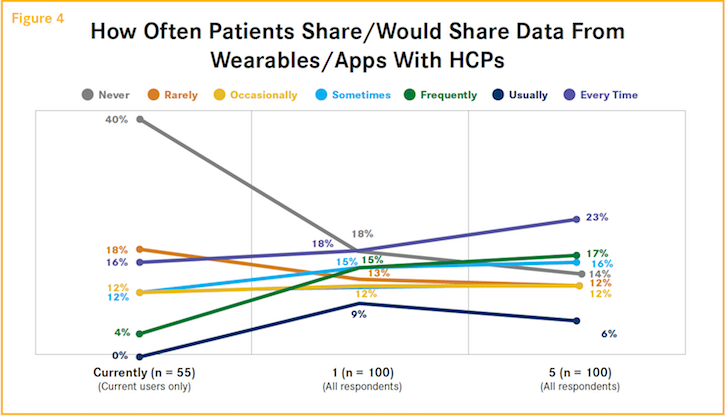
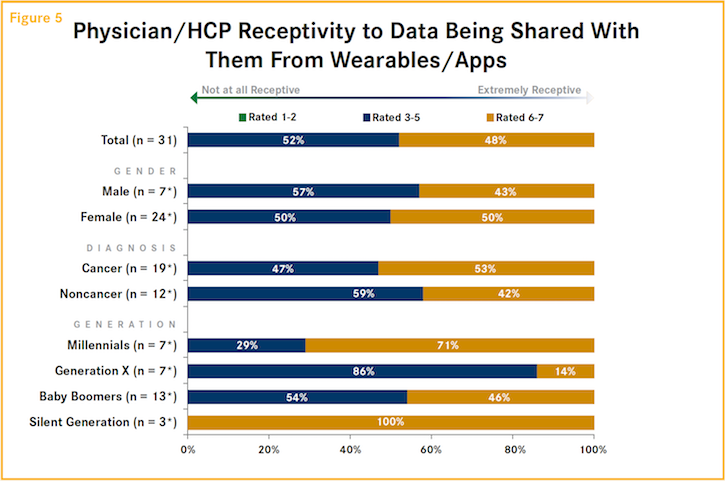
Healthcare Research & Analytics® (HRA®) is a consultative healthcare market research practice leveraging a flexible spectrum of solutions to support decision making and strategy development across healthcare channels, with a particular focus on the hospital setting and specializations in managed markets, oncology, and pharmacy. Our team of highly experienced market researchers combines domain expertise in healthcare, science, technology, and statistics with a passion for uncovering insights.
Telehealth faces a looming deadline in Washington | Healthy Bottom Line podcast
February 12th 2025Once again, the clock is ticking on waivers for telemedicine and hospital-at-home programs. Kyle Zebley of the American Telemedicine Association talks about the push on Congress and the White House.